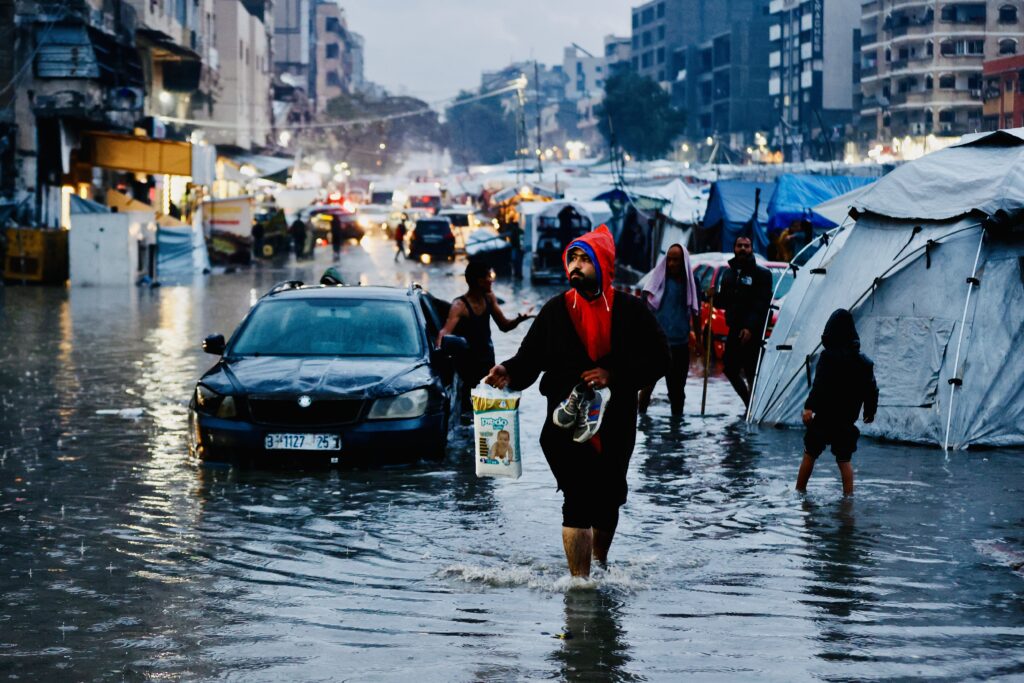AFP Asia Business
Fresh rains flood streets in war-scarred Gaza
Some pushed cars through the Gaza Strip’s flooded streets, while others took to donkey-pulled carts to wade through the floodwaters after fresh winter rains lashed the war-battered Palestinian territory.The rains have flooded tents and makeshift shelters in Gaza, where most of the buildings have been destroyed or damaged by two years of war between Israel and Hamas.The health ministry in the Hamas-run territory said a two-week-old baby named Muhammad Khalil Abu Al-Khair died because of severe hypothermia caused by extreme cold.The ministry said the baby had been admitted to a hospital two days ago and placed in intensive care, but died on Monday.Although a ceasefire between Israel and militant group Hamas that took effect in October has partially eased restrictions on goods and aid, the United Nations says not enough is entering Gaza where people’s needs are great.The UN said on Monday that an estimated 1.3 million people currently need shelter assistance in Gaza and warned of the increasing risk of hypothermia.It said babies were in particularly “high danger” from the winter conditions.”With heavy rain and cold brought in by Storm Byron, people in the Gaza Strip are freezing to death,” the UN Palestinian relief agency’s head Philippe Lazzarini said in an X post on Monday.”Our supplies have now been waiting for months to enter Gaza. They would cover the needs of hundreds of thousands of people in desperation,” he added.- ‘Living in the streets’ -Last week, heavy rain from Storm Byron battered the territory — compounding the suffering of the territory’s residents, nearly all of whom were displaced during the war.Gaza’s civil defence agency — which operates as a rescue force under Hamas authority — said on Friday that at least 16 people had died within 24 hours from collapsed buildings and the effects of the cold.On Tuesday, agency spokesman Mahmud Bassal said at least one person had died after the roof of a building collapsed following heavy rains in northwest Gaza City.He said the house had already been damaged by air strikes during the war.AFP footage showed rescuers pulling the body of a man out of the collapsed slabs of concrete on a stretcher, while grieving relatives wept in the street.”We call on the world to solve our problems and rebuild the territory so that people can have homes instead of being displaced and living in the streets,” said Ahmed Al-Hosari, who lost a relative.Located between the Sinai and the Negev desert on one side, and the Mediterranean Sea on the other, the tiny Gaza Strip receives nearly all of its precipitation via strong rain in the late autumn and winter.str-az-raz-acc-glp/jfx

